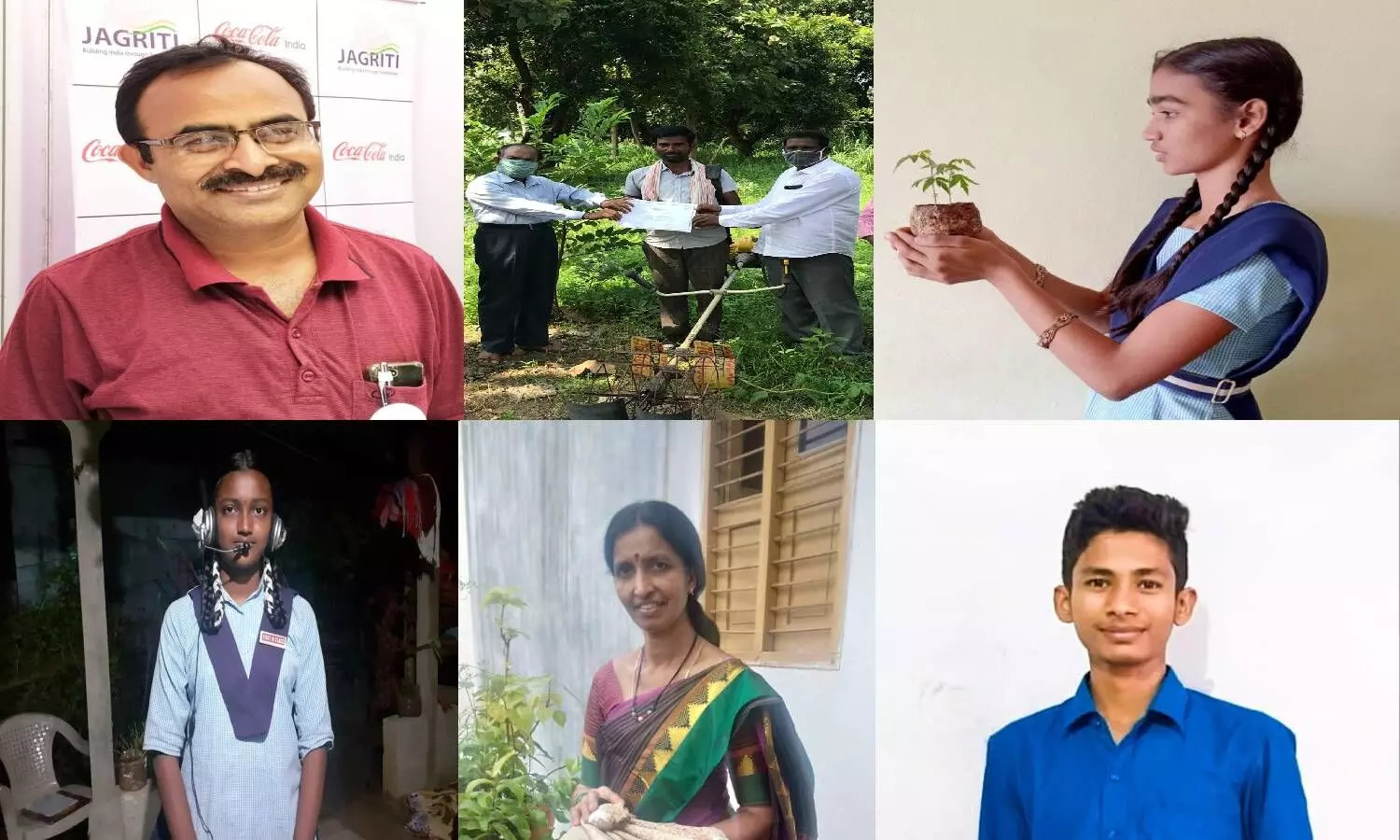Telangana farmers, rural students led the way for innovation in 2020
Telangana farmers and rural students and entrepreneurs came up with several innovations in 2020. Here's a look at the inventors and their innovations selected by the Telangana state innovation cells (TSIC):
By Sumit Jha
Hyderabad: Telangana farmers and rural students and entrepreneurs came up with several innovations in 2020. Here's a look at the inventors and their innovations selected by the Telangana state innovation cells (TSIC):
Narsimha Chary (rural entrepreneur)
Narsimha Chary is a rural entrepreneur who invented an ultraviolet box with filament-less UV-C light which kills COVID-19 virus within 15 seconds. The device has been successfully tested by CSIR- Centre for Cellular and Molecular Biology (CCMB), Hyderabad.
The ultraviolet box can kill 99 per cent of the virus when exposed for a minimum of 15 seconds and a maximum of 1,200 seconds. This is when the virus sample is placed 30 cms away from the light.
"It is good to see small entrepreneurs and start-ups coming up with innovative ideas and products. CCMB is very happy to test, validate, and provide technical assistance wherever possible for such innovations," said Dr. Rakesh Mishra, the director of CCMB.
Narshimha Chary with Dr Rakesh Mishra
The 39-year-old Narshimha Chary said, "There are several inventors in the rural areas, too, who are looking for opportunities. For my innovation, I thank CSIR-CCMB director Dr. Rakesh Mishra, senior scientist Bokara Kiran Kumar, the TSIC team, the Telangana government, and minister Kalvakuntla Taraka Rama Rao."
Mukku Subbareddy (farmer)
Mukku Subbareddy is a farmer from Bhadradri-Kothagudem district. He has invented a low-cost weed-remover by replacing two 6-kg company wheels with 1.2-kg wheels that reduces physical strain and allows farmers to cover two acres per day instead of one.
The smaller wheels mean farmers with small lands do not have to buy a separate power-weeder. "The machine is lightweight and helps farmers weed a large portion of lands," said Mukku Subbareddy.
A. Srija (student)
A. Srija, a student of the Zilla Parishad High School (ZPHS) in Chintalakunta in Telangana's Jogulamba district, won the third prize at the CSIR Innovation Award for School Children 2020.
Srija, a Class IX student, and K. Hari Krishna, a Class VIII student, won the prestigious award for making biodegradable pots with groundnut shells to plant saplings in nurseries. "I feel happy about winning a national award. This will help me create awareness among people about reducing plastic usage which is a threat to the environment. These pots will also help reduce pollution," said Srija.
She came up with the idea to make bio-degradable pots on 19 March 2020 when she was digging a pit on her school premises to plant a sapling. She found a polythene bag from a sapling that was planted a few years ago. She observed that the sapling had been planted along with the polythene bag.
"Polythene bags are used in nurseries to propagate saplings. These are single-use plastic which is harmful to the environment as it is non-degradable and takes years to disintegrate. These polythene bags gradually break down into smaller microplastics which contaminate our soil and water and these are transmitted to animal tissue and finally, enter the human food chain," Srija explained.
She added, "It was then that I thought there should be an alternative to plastic bags and got the idea for bio-degradable pots."
T-works, India's largest prototyping centre in Hyderabad, invited Srija to bring her creation to them so that a large number of people can know about it.
M. Raajanajli (student)
Raajanajli, a Class VIII student of Zilla Parishad High School in Ramagiri mandal in Peddapalli district, along with her science teacher T. Sampath Kumar invented what they have called a 'locusts menace prevention machine'.
This device is designed to protect farms from locusts, wild boars, monkeys, and other such animals. Pre-recorded sounds of a police siren and animal roars are played whenever the sensors detect any movement. The device costs less than Rs. 1,000 and can be used by multiple farms at once.
The inventors have downloaded various noises and animal sounds animals in a chip that is inserted in the device. If any movement is detected within a range of seven meters, the sensor starts blaring sounds.
Arunjyothi Lokhanday (homemaker)
Arunjyothi Lokhanday is a homemaker who invented seed-paper napkins made from vegetable waste. The napkins are a do-it-yourself project that converts wet waste into a medium that preserves seeds. The napkin or a portion of it when sown will grow into vegetables.
Her seed paper napkins are based on a quick sandwich recipe. Vegetable and fruit peels, rotten greens, neem leaves, and okra (lady's finger) are ground to make a stock paste. The mush is then spread on a paper napkin and seeds sprinkled in the square or desired shape. Another napkin on the top completes the 'sandwich', ready for sun-drying. Paper napkins are thin and easily biodegradable.
Gorre Ashok (student)
He invented a seed-sowing stick that helps farmers sow seeds without bending. This can prevent back pain among farmers which is caused while sowing seeds in the traditional process.
Ashok realised that farmers were spending a major portion of their earnings buying farm implements and to engage labourers. The 17-year-old devised the low-cost tool that could be of immense use for them.
Ashok's father is a farmer and owns five acres in Ajalapuram village in Suryapet district. Ashok began fabricating low-cost tools after joining the intermediate vocational course in Government Junior College at Devarakonda.